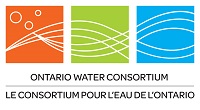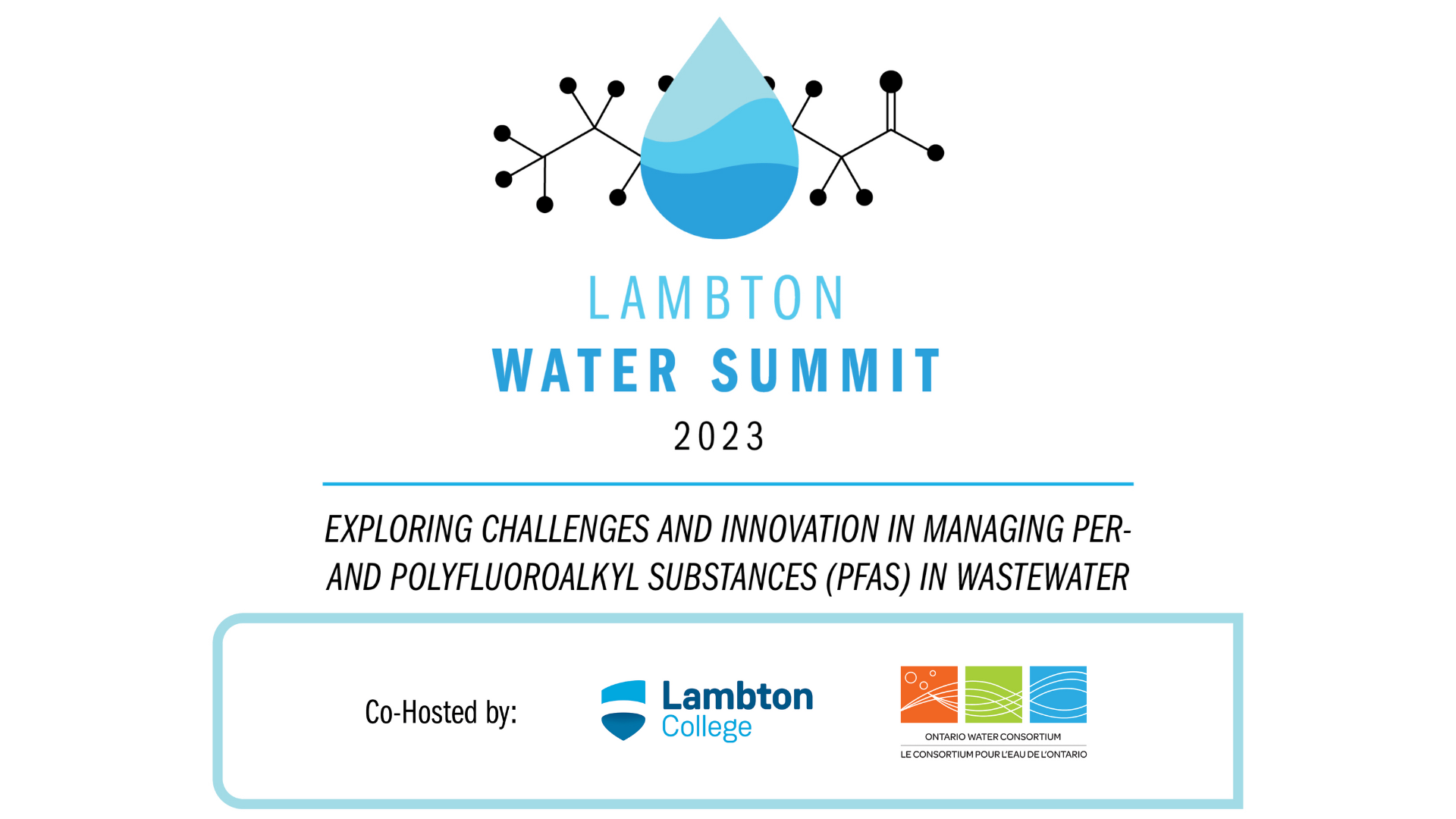The Lambton Water Summit 2023, held on October 3rd, brought together experts from various fields to discuss one of the most pressing environmental challenges of our time: the presence of Polyfluroalkyl Substances (PFAS) in our water and wastewater. Co-hosted by Lambton College and the Ontario Water Consortium (OWC), and featuring a lineup of distinguished speakers, this event provided a comprehensive overview of PFAS, its implications, and potential solutions. The summit was a resounding success, with participants engaged in meaningful discussions and knowledge-sharing.
Opening Remarks
The summit commenced with opening remarks by Robert Nyman, Manager of Programs and Partnerships for OWC and the emcee for the event. Robert outlined the agenda for the day, which included four morning and three afternoon presentations.
Morning Session Highlights
Unraveling the PFAS Puzzle: From History and Applications to Risk Management
Dr. Beatrice Cantoni, a Junior-Assistant Professor at the Department of Civil and Environmental Engineering at Politecnico di Milano, Italy, kicked off the morning session. Her presentation delved into the history, diverse applications, and risk management of PFAS. Dr. Cantoni’s expertise shed light on the multifaceted nature of these chemicals and the strategies to mitigate their impact on North America.
Adventures in PFAS Analytical Test Method Development
Prof. Margaret Carter, a veteran professor at Lambton College, offered insights into the development of analytical methods for detecting PFAS. Her extensive experience in analytical methods, particularly chromatography, provided valuable insights into the challenges and innovative solutions in this critical area.
Environmental Health and Toxicology
Dr. Theodore Smith, an Associate Professor of Medicine and Director of the Centre for Healthy Air, Water, and Soil at the University of Louisville, presented on the toxicological effects of PFAS exposure on ecosystems and human health. His research focuses on providing insights into preventing or reducing the burden of disease through environmental technologies.
Occurrence and Implications of PFAS in the Great Lakes Basin
Dr. Michael Murray, an environmental scientist with expertise in the Great Lakes region, discussed the occurrence and implications of PFAS in this vast freshwater ecosystem. He highlighted the challenges posed by PFAS contamination in the Great Lakes and suggested research and policy approaches for managing these compounds.
Afternoon Session Highlights
Preserving Indigenous Lifeways – the Unknown Battle Against PFAS
Whitney Gravelle, a citizen of the Bay Mills Indian Community in Michigan, emphasized the importance of addressing PFAS contamination in indigenous communities. She shared insights into the environmental and health impacts of PFAS within the Sarnia and Ontario First Nations communities and stressed the need for education and community engagement.
Wastewater & Municipalities
Dr. Kati Bell, the Director of Water Strategy for Brown and Caldwell Consulting, discussed the global regulatory environment surrounding PFAS and its impact on North American water and wastewater utilities. Her presentation shed light on the challenges faced by municipalities in managing PFAS.
Technology Developments & Treatments
Dr. Scott Hopkins, a professor of physical and analytical chemistry at the University of Waterloo, shared the latest technological advancements in treatment methods for PFAS removal from water sources. Dr. Hopkins’ research focuses on applying mass spectrometry and laser spectroscopy to address PFAS contamination in Canadian waters and waste waters.
Closing Remarks
The Lambton Water Summit 2023 provided a platform for experts to share their knowledge and insights into the complex issue of PFAS contamination in water and wastewater. As the world continues to grapple with the challenges posed by PFAS, events like these play a crucial role in fostering awareness and collaboration to safeguard our precious water resources.


